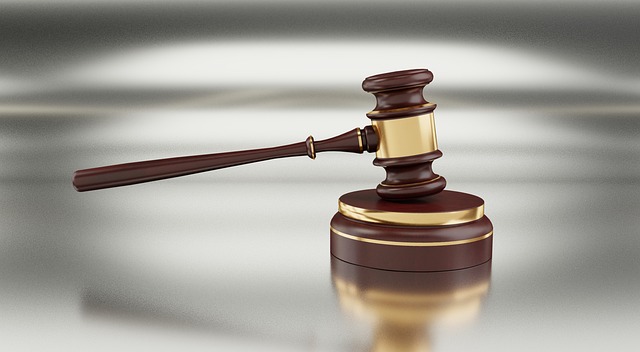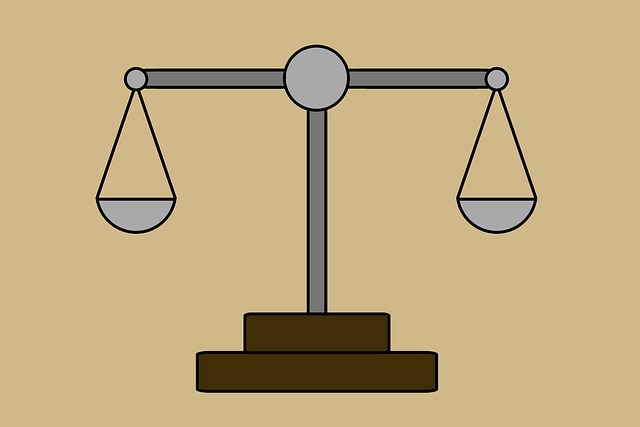Criminal defense hearings and appeals are critical phases in the criminal justice system, requiring skilled legal professionals with criminal proceedings expertise. Experienced attorneys demystify complex procedures, guide clients through the process, and develop tailored strategies. They challenge evidence, interrogate witnesses, and protect their clients' rights by staying informed about case law and legislative changes. Defendants should avoid common mistakes like inadequate preparation or insufficient communication with counsel. Effective navigation of these proceedings ensures a fair trial and protects the interests of the accused.
“Navigating complex legal systems can be daunting, especially during critical criminal defense hearings and appeals. This comprehensive guide aims to demystify these processes, empowering accused individuals with knowledge of their rights and procedural understanding. From unraveling the intricacies of criminal proceedings to recognizing common pitfalls, we explore essential strategies for successful outcomes. Our expert insights into legal expertise and its role in deciphering complex cases offer valuable tools for those facing criminal charges, ensuring a robust defense.”
- Understanding Criminal Defense Hearings: A Comprehensive Guide
- Navigating Appeals Processes: Rights and Procedures for Accused Individuals
- The Role of Legal Expertise in Deciphering Complex Criminal Proceedings
- Common Mistakes to Avoid During Criminal Defense Hearings and Appeals
- Strategies for Successful Outcomes: Tips from Criminal Defense Attorneys
Understanding Criminal Defense Hearings: A Comprehensive Guide

Criminal defense hearings are a critical phase in the criminal justice system, providing an opportunity for individuals accused of crimes to present their case and mount a robust defense. This comprehensive guide aims to demystify these hearings, offering insights into their purpose, structure, and the crucial role played by legal expertise. Understanding the intricacies of criminal proceedings is essential for both defendants and their representatives to ensure a fair trial and safeguard their rights.
During these hearings, skilled legal professionals use their knowledge of the law and court procedures to challenge evidence, cross-examine witnesses, and argue on behalf of their clients. The process involves meticulous preparation, including reviewing case files, researching relevant laws, and strategizing to counter the prosecution’s arguments. This expertise is vital in navigating the complexities of criminal defense, ensuring that every aspect of the case is thoroughly examined and presented in the best light for the accused.
Navigating Appeals Processes: Rights and Procedures for Accused Individuals

Navigating appeals processes is a complex and crucial step for individuals accused in criminal proceedings, where their future and freedom are at stake. Understanding one’s rights and following proper procedures is essential to ensure a fair outcome. With the help of experienced criminal defense lawyers, accused individuals can navigate this intricate landscape, leveraging their expertise to advocate for their case and protect their rights throughout the appeals process.
The right to appeal is a fundamental aspect of the legal system, providing a second chance to challenge convictions and sentences. However, it’s a meticulous journey that demands attention to detail and adherence to strict deadlines. Experienced legal professionals guide clients through each stage, from preparing appellate briefs to presenting arguments before higher courts, ensuring their voices are heard and their rights are defended.
The Role of Legal Expertise in Deciphering Complex Criminal Proceedings

In navigating complex criminal proceedings, legal expertise plays a pivotal role in deciphering and understanding intricate laws, regulations, and procedural nuances. Criminal defense attorneys equipped with profound knowledge and skills can effectively guide clients through the often-confusing landscape of the justice system. They demystify technical jargon, ensuring clients comprehend their rights, potential outcomes, and available defenses. This expertise is crucial for building robust strategies tailored to each case’s unique circumstances.
Moreover, legal professionals with extensive experience in criminal defense hearings and appeals can anticipate potential challenges, navigate bureaucratic hurdles, and present compelling arguments on behalf of their clients. Their insights into case law, procedural rules, and evidentiary standards enable them to make informed decisions, challenge prosecution evidence, and protect their clients’ interests at every stage of the legal process.
Common Mistakes to Avoid During Criminal Defense Hearings and Appeals

Many defendants make critical mistakes during criminal defense hearings and appeals that undermine their cases, often due to a lack of understanding or experience with legal procedures. One of the most common errors is failing to prepare adequately. This includes not gathering all relevant evidence, misinterpreting rules of evidence, and not researching case law applicable to the defendant’s situation. Defendants should also avoid public discussions about their case on social media or with third parties before the hearing, as this can be used against them in court.
Another frequent mistake is insufficient communication with their legal counsel. Effective criminal proceedings expertise requires open dialogue between client and attorney. Defendants must clearly communicate their version of events, concerns, and desired outcomes to ensure their attorneys can build a robust defense strategy. Additionally, not challenging inaccurate or misleading information presented by prosecutors during hearings or appealing cases based on weak arguments can result in harsher sentences or convictions.
Strategies for Successful Outcomes: Tips from Criminal Defense Attorneys

Navigating criminal defense hearings and appeals requires a strategic approach, and experienced attorneys often share valuable insights to ensure favorable outcomes. Criminal defense lawyers emphasize the importance of thorough preparation, beginning with a comprehensive review of the case details and evidence. They suggest gathering all relevant information, including witness statements, police reports, and any potential alibis or exculpatory evidence. This meticulous process forms the backbone of a strong defense strategy.
Attorneys also recommend maintaining open communication with clients, ensuring they understand their rights and options throughout the criminal proceedings. Building trust and fostering a collaborative relationship can lead to more effective decision-making. Additionally, staying updated on legal precedents and changes in legislation is crucial, as it enables attorneys to employ relevant case law and advocate for their client’s best interests during hearings and appeals.














